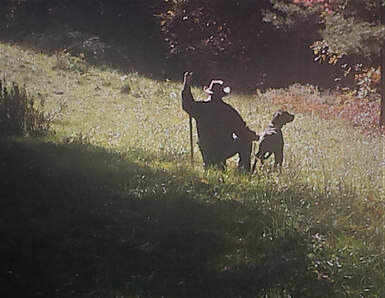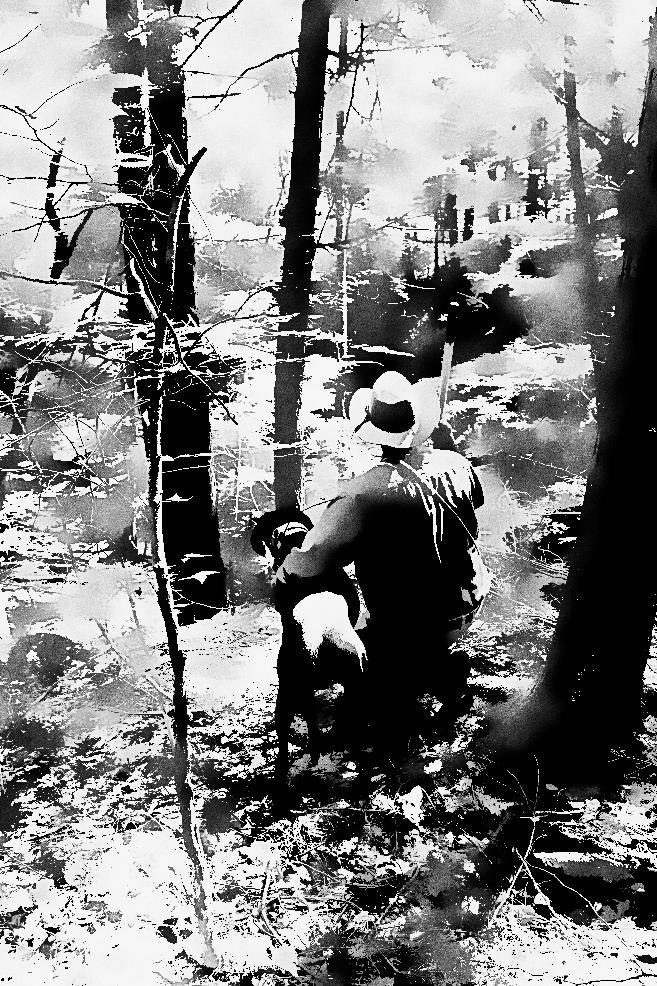 Seth and me during the filming for the book trailer of An Exceptional Hound. Seth and me during the filming for the book trailer of An Exceptional Hound. I know. Favorite “editing” story? Before you accuse me of “not having seen the ball since kickoff,” please let me explain. When a writer finds that “just right” professional copy editor (and every writer needs to find that just-right professional copy editor), you form both a working and personal relationship. On many occasions, I’ve said a good copy editor is worth their weight in platinum. I stand by that assertion. A good copy editor will know The Chicago Manual of Style (CMOS)* front to back, respect the author’s voice and judgment—while pointing out inconsistencies (in plot or style) and perhaps awkward sentence or paragraph structure—catching those errors that the much-nuanced English language allows one to make. The Story Within a Story In An Exceptional Hound, the titular character Seth carries the title the “King of Hounds.”** Initially, my intent was to follow what is called “downsize capitalization” style and wrote “king of hounds” throughout the novel except for the climax scene, where Seth’s title would become capitalized for dramatic effect. My fabulous copy editor, Joyce Mochrie, whom I oftentimes think wrote CMOS, sent me an email as she was editing Exceptional. She said—paraphrased just slightly, “OH NO! If the villain’s title (a ‘Great Bear’) is going to be capitalized throughout the story, so is Seth’s!” Ever get to the point when you just know you’re not going to convince someone of something otherwise? There wasn’t much gray area in Joyce’s desire. (And her request certainly wasn’t phrased in a “Daddy-may-I?” format either.) Now, you might be expecting this is where I wrote back, saying, “No! Do it my way!” Surely, there must have been at least one hundred emails between Joyce and me asserting each other’s intent. There must have been much gnashing of teeth and throwing of keyboards, right? Nope. I capitulated immediately and told Joyce to go ahead with her recommendation. My fabulous copy editor had made just the sort of emotional connection I wanted all readers to make with the story’s character. It was endearing. How could I say no? The Lessons Within The Story Within a Story I have many other editing stories (and even a couple anecdotes with my first content editor, Dr. Cherri Randall***)—from outright humorous to the sublime. For writers, the obvious takeaway from this story is to get a professional copy editor. If you’re convinced some editing software is going to do the final trick of copy editing your ms, I can’t help you. Further, you absolutely should try to give your copy editor a perfect manuscript. (You won’t, but do your best.) Why? Isn’t that what you’re paying the copy editor to do? The reason to put your best foot forward: if you remove the obvious errors, you allow your copy editor to get into your ms even deeper to make a better final product. Don’t overwhelm your editor with obvious errors—trust me—there will be plenty of deeper errors to be corrected. And maybe there’s a life lesson nestled in here somewhere, too. Lord knows, I’ve learned many of those lessons the hard way. Take life one step at a time—sort of like walking in the woods following a hound—and allow the only times you get deeply excited are for things that truly matter. . . . Sort of like when you hear your hound open and tree. *And at over one thousand pages, CMOS could choke a horse. Note—yes, there are other style manuals for specific genres; whoever your editor is, she/he needs to be an expert with your genre’s style.
** The short story, “The Ascension” (https://www.rylandcreektwo.com/blog-in-a-place-called-painted-post/the-ascension) tells how the character Seth earns this title. *** Cherri’s famous quote to me during the content editing of The Last Coon Hunter: “Oh, you poor man, you just don’t understand women.” (I’m going to let that one stand. If you expected further commentary—nope, sorry—I’m a tad smarter than I look.)
2 Comments
Your comment will be posted after it is approved.
Leave a Reply. |
Categories
All
|
- Ryland Creek
- About The Ryland Creek Novels
- Buy the Ryland Creek Saga: Print Books
- Buy the Ryland Creek Saga in E-Book
- The Ryland Creek Saga in Audiobook
- Blog: In a place called Painted Post
- Reader Reviews for The Ryland Creek series
- Meet the Author:Joseph Gary Crance
- An Ode to Painted Post
- The Magical Realism of the Ryland Creek Saga
- Other local authors
- Contact
- Leave A Reader Review
- Ryland Creek
- About The Ryland Creek Novels
- Buy the Ryland Creek Saga: Print Books
- Buy the Ryland Creek Saga in E-Book
- The Ryland Creek Saga in Audiobook
- Blog: In a place called Painted Post
- Reader Reviews for The Ryland Creek series
- Meet the Author:Joseph Gary Crance
- An Ode to Painted Post
- The Magical Realism of the Ryland Creek Saga
- Other local authors
- Contact
- Leave A Reader Review

 RSS Feed
RSS Feed